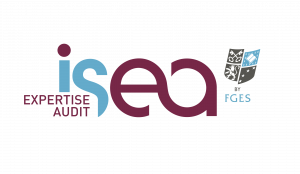Master in Management control and auditing
SPECIALISATION : INFORMATION SYSTEMS
National master’s degree pending
Master’s in Law – Economics – Management/Field of Study: Management Control and Organisational Auditing/Specialisation: Information Systems and Management Control
For whom ?
Students with a bachelor’s degree in management, accounting, finance, DCG (Diploma in Accounting and Management), other degrees with skills in management, accounting, finance, or a Master of Business Informatics.
An affinity for information systems is a must.
why choose this master ?
A Master’s program that addresses the digital transformation of accounting professions.
Companies are undergoing transformation, and management control plays a key role in this process.
How? Through the use of business intelligence tools, data collection, and their analysis, companies are supported in their strategic, digital, and environmental management and transformation.
Management controllers, auditors, and financial departments:
- Utilize information systems for their own needs (financial modules of ERPs, decision support systems, business intelligence tools, consolidation tools).
- Act as co-pilots and coordinators in the digital and environmental transformation of their companies.
Why choose this master Management control and auditing ?
- Respond to new management control challenges: mastering accounting and financial techniques and management tools
- Become a project owner with regard to information systems
- Support companies through their digital transformation
- Produce and analyse data for managers
- Master the intricacies of business intelligence, from data collection to implementation
advantages
- A training program offered by ISEA, School of Expertise and Audit of the Faculty.
- Dual expertise: Management Control/Organizational Audit and Information Systems.
- Integration of Information Systems challenges: risk management and IT auditing.
- Integration of challenges related to the environmental transition of companies.
- Internship over the 2-year master’s program = 24 months of professional experience.
- Proficiency in ERP systems: SAP, business intelligence software.
- A program that is a member of the CGAO Masters Association (in progress).
- Exemption from 3 units of the DSCG (exams #3, 6, and 7).
program
The subjects and credits presented in this program are subject to change without compromising the essential content and direction of the training.
Master 1
En alternance de septembre à juin puis en entreprise de juin à mi-septembre au rythme d’une semaine en cours et trois semaines en entreprise.
| SEMESTRE 1 |
| Système d’informations et entreprise |
| Tableur et bases de données avancées 1 |
| SQL |
| Comptabilité et analyse financière |
| Contrôle de gestion 1 |
| Projet professionnel 1 |
| Séminaire professionnel |
| Business English |
| Management d’équipe |
| Système d’information et Gestion de projet |
| Audit des systèmes d’information 1 |
| Principes de l’audit |
| SEMESTRE 2 |
| Transition digitale |
| ERP SAP |
| Consolidation |
| Contrôle de gestion 2 |
| Contrôle de gestion industrie |
| ERP Sage |
| Tableur et bases de données avancées 2 : power BI |
| Gouvernance et contrôle |
| Gestion des risques et Audit des systèmes d’information |
| Evaluation professionnelle (évaluation alternance) |
| Projet professionnel 2 |
| TOTAL 60 crédits ECTS |
Master 2
En alternance de septembre à juin puis en entreprise de juin à mi-septembre au rythme d’une semaine en cours et trois semaines en entreprise.
| SEMESTRE 1 |
| Stratégie des Systèmes d’Information |
| ERP : gestion de l’intégration des données |
| Contrôle de gestion environnemental |
| Consolidation 2 |
| Approches sectorielles du contrôle |
| Gestion de projet 2 |
| Management d’équipe : communiquer et conduire le changement |
| Audit and management control |
| Méthodologie de recherche |
| Pilotage de performance sociétale, environnementale et éthique |
| Management de projet et tableaux de bords |
| Contrôle interne et gestion des risques financiers |
| Contrôle interne et gestion des risques opérationnels |
| SEMESTRE 2 |
| Data management and analysis |
| Financial communication |
| Informatique décisionnelle |
| Contrôle interne et gestion des risques IT |
| Intégration des problématiques RSE dans les projets SI |
| IFRS |
| Risques en banque et assurance |
| Audit organisationnel |
| Evaluation professionnelle |
| Séminaire professionnel |
| Séminaire de recherche (mémoire de recherche) |
| TOTAL 60 crédits ECTS |
And after ?
- Management-control-oriented professions: management accountant, industrial management accountant, reporting manager, administrative and financial manager, financial analyst, etc.
- Information-systems-oriented professions: project owner, assistant project owner, project coordinator, decision-making system consultant (Business Intelligence)
By acquiring these two parallel skill sets, graduates can play an important role in a range of organisations.








